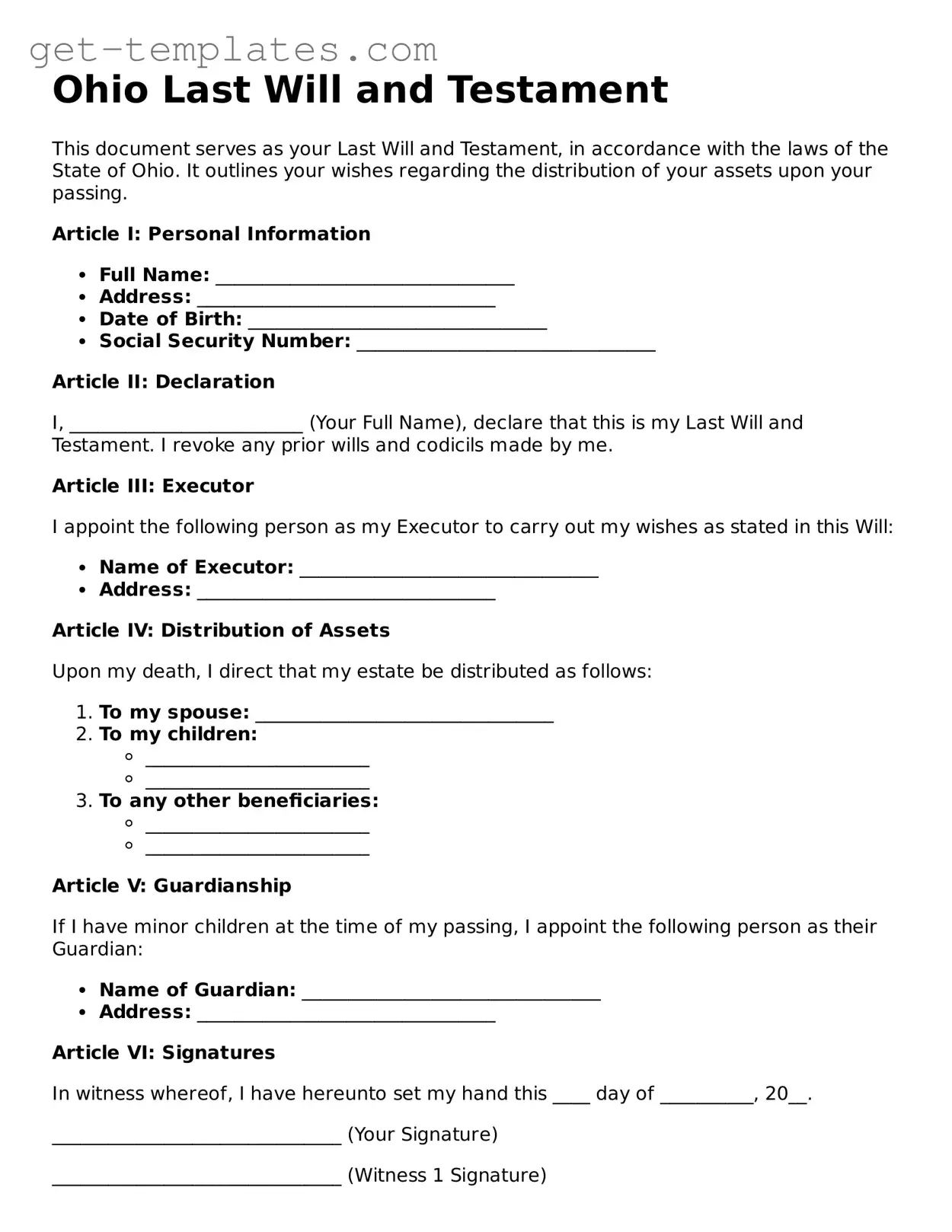Attorney-Approved Last Will and Testament Document for Ohio
A Last Will and Testament form in Ohio is a legal document that outlines how an individual's assets and affairs should be managed after their death. This form allows individuals to specify their wishes regarding the distribution of property, guardianship of minor children, and the appointment of an executor. Properly executed, it ensures that a person's intentions are honored and provides clarity for surviving family members.
Get Document Online

Attorney-Approved Last Will and Testament Document for Ohio
Get Document Online
You’re halfway through — finish the form
Finish Last Will and Testament online — edit, save, download made easy.
Get Document Online
or
⇓ PDF Form
